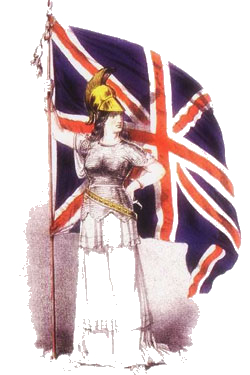
|
by H.W. Crocker III Transcribed from the audio by pragerfan Over the last 400 years, what power has done the most to spread the ideals of limited government, independent judiciary, certain inalienable rights, and free markets? That power would be the British Empire. It was Britain that gave these ideals to the United States. It was the British Empire, the largest empire the world had ever known, which made these ideals global aspirations. It was the British Empire, along with America, that defended these ideals in two colossal world wars. Freedom was an Englishman's right and wherever he went, he took that right with him. Whether he was an English pirate in the Spanish New World, bringing free trade at the edge of a sword, or English colonists in America, governing himself through a locally elected assembly, or an English adventurer, like Sir Stamford Raffles, creating the free-market city-state of Singapore, or an English officer like T.E. Lawrence leading Arab tribesmen against the Turks. British always thought of themselves as liberators, as bringers of freedom. The British believed that the final and necessary justification of their empire was a moral one. British kept the peace. The brought sound, honest administration, and they insisted that basic moral standards were honored. The British did not try to nation-build in the way we think of it now. They were under no illusions about making Arabs, Afghans or Zulus into Englishmen. They were more than content to leave people alone, to let them be themselves, to govern them with the lightest possible hand. In American history, we remember this when we think of the British Empire's so-called "benign neglect." We can see it throughout the history of the British Empire. Think about the vast territory of the Sudan. It was governed by 140 British civil servants. Even Gandhi praised the British Empire, paraphrasing Jefferson, saying he believed that the best government is the government that governed least, and that he found the British Empire guaranteed his freedom and governed him least of all. In the defense of freedom, the empire drew moral lines. No power did more to abolish slavery and the slave trade in the modern world than did the British Empire. The British Treasury spent enormous sums to liberate slaves, and compensate slave owners in the Carribean. The Royal Navy had as a primary duty the eradication of the slave trade. In fact, abolishing the slave trade became a major factor in driving the expansion of the British Empire. The British enforced a Pax Britannica, putting down pirates, taming headhunters, and keeping the peace between previously warring tribes and religions. While respecting and often ruling through local leaders, British still insisted on certain Judeo-Christian moral standards. They were not, in that respect, multi-culturalists. They had a firm sense of right and wrong. When Sir Charles Napier was confronted by the practice of suttee, widow burning in India, he told a Brahman priest involved that he understood it was their custom but the British had a custom too. They hanged men who burned women alive, and their goods were confiscated, so if the Brahmans insisted on continuing their tradition of widow burning, then he would insist on following his British tradition of hanging the murderers of widows. Widow burning in India soon ceased. But we don't have to dig far in history, into the abolition of slavery and widow burning, to find the British Empire on the side of moral right and freedom. We can think of events within our own lifetimes, or those of our parents and grandparents. We think of the two deadliest threats to freedom in the 20th century, we generally think of Communism and Nazism. But how many remember that in 1940, after the Hitler-Stalin Pact, after the fall of France, one power - the British Empire - stood alone in mortal combat against the combined tyrannies of the world? Even where the British have merited criticism as in Ireland, there is more to the imperial story. During negotiations to create the Irish Republic for instance, British prime minister David Lloyd George reminded the Irish nationalist and Gallic extremist Eamon de Valera that the Celts had never had a word for "Republic." It was an idea given to them by the English. This is our own history too. If you love America, you should also love the power that gave us our sense of inalienable rights, rights traceable back to the Magna Carta. It all started in America with the British Empire, the great liberty-loving empire. It is the empire's legacy in the English-speaking world that remains the great global guardian of freedom today. |
 H. M. Queen Victoria |

